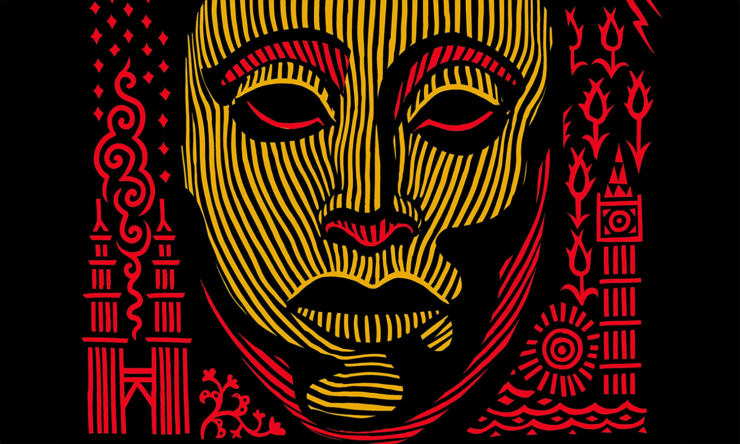Urban fantasy is a subgenre in the continuum of the fantastic which superimposes supernatural elements onto one or more contemporary urban settings. Basically, big bustling cities populated by both humans and fantasy creatures, often dealing with modern problems. Think fallen gods partying in nightclubs of Lagos or London or Los Angeles. Vampires that are into crypto. Lawyers that are secretly sorcerers. Witches driving fast cars while making trades on the stock market. Urban fantasy might be my favorite subgenre because when done well, the juxtaposition can generate fascinating new spins on classic tropes and be used to critique aspects of our modern world—economics, politics, religion, technology, culture and more—by exaggerating or casting them in a new light.
Now, in many African cultures, the supernatural and the physical are often already believed to exist side by side, and it’s not unusual to find supernatural elements popping up in non-genre fiction (hello, Magical Realism, my old friend, I’ve had to mention you again).
In fact, I grew up with many such stories, some of which inspired parts of my novel Shigidi and the Brass Head of Obalufon. But just because a story is largely set in an African city and contains descriptions of traditional belief systems including gods or spirits, that doesn’t automatically make it urban fantasy. I think the fantasy element should be overt and baked into the fabric of the story, especially when derived from real world beliefs, while remaining respectful of those sources. The sense of place needs to come through strongly. The stakes should be high. And the story should have a sense of fun while having a mind or a heart—ideally both.
Here are five fast-paced African urban fantasy books that fit the bill.
David Mogo: Godhunter by Suyi Davies Okungbowa
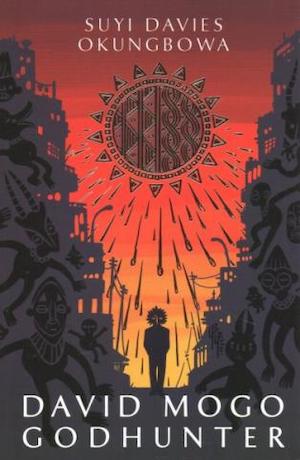
Often described as godpunk (which it is), this is also urban fantasy. David Mogo: Godhunter follows the eponymous David, who lives in Lagos after gods have fallen down to earth. As a result, a host of supernatural entities now roam parts of the city and a new, weird equilibrium has been established. Of course, the government is spectacularly useless in helping people deal with this new reality and so David, a sharp and cynical demi-god living with the Babalawo that adopted him, Papa Udi, uses the opportunity to make money by taking his odd jobs for people who find themselves plagued by the supernatural. The gods may have fallen, but man must wack. When David takes a high-profile job for a local sorcerer that turns out to have bigger consequences than his usual hustle, it ignites three-part story with consistently escalating stakes, all taking place in a lovingly realized Lagos city. We get awesome supernatural battles, wisecracking characters, motorcycle chases through a decrepit Lagos Island and so much fun! This is an action-packed adventure novel that only gives you space to breathe when you move from one part to the next.
Bones and Runes by Stephen Embleton
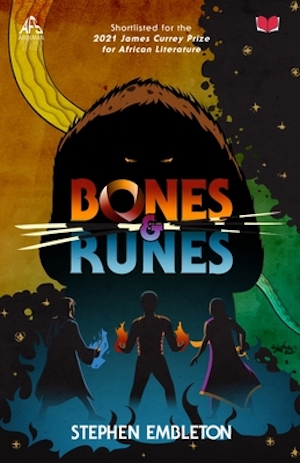
An iSangoma named Mlilo, a Druid named Dan, and a Hindu Warrior-Magician named Amira walk into a bar in Cape Town… Well, Okay I lied. They don’t walk into a bar, they walk into the Zulu spirit realm of Abaphansi, to retrieve the sacred and powerful bones of Mlilo’s family from the clutches of a growing evil while also seeking answers of their own about their true callings and where they fit in the world. As the trio pop in and out of spirit planes that are just adjacent to our real world, rubbing up against the city of Cape Town, they are both challenged and assisted by gods, creatures, demigods, spirits, deities, shapeshifters, and even local militarized religious cults all with their own agendas—providing lots of excitement as well reflections on South African spiritual traditions both native and imported. Confident in its use of language to engage with the themes of unity, friendship, heritage, and culture while still delivering on the action (especially in its third half), this is a vivid and fun urban fantasy quest.
Akata Warrior by Nnedi Okorafor
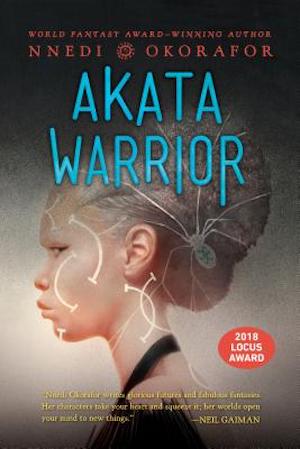
The sequel to Akata Witch sees our heroine, Sunny Nwazue, a Naijamerican albino girl who lives in Aba city where she discovered her powers and joined the secret society of Leopard people, embark on a bigger adventure. Aba is one of Nigeria’s most famous cities, so it was great to have the first novel set there. One could argue that Akata Witch was an urban fantasy also, but this sequel Akata Warrior is an Africanjujuism story that leans into its urban fantasy elements. Now plagued by recurring visions of a burning city and following an attack from Ekwensu, a malevolent deity, Sunny and her friends disobey Leopard society rules, venture to Lagos to meet a spider god named Udide, and make their way to the secret magical city of Osisi to confront Ekwensu. This may be part two of a YA series, but Okorafor writes Sunny’s adventures with an adult sensibility and realism for the urban areas they take place in: Aba, Lagos, even the imagined Osisi. Like every good urban fantasy hero, Sunny finds her way into trouble often, which provides plenty of action all the way to the epic finale.
The Library of the Dead by T.L. Huchu
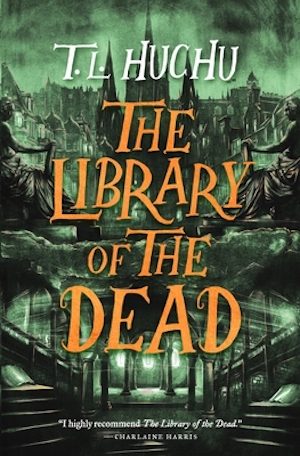
Set in a post-catastrophe Edinburgh, this novel is propulsive fun. Ropa Moyo is a brash and bright Zimbabwean teenage school dropout who now makes a living communicating with spirits. We follow Ropa as she goes about her work with attitude and heart, stumbles into an occult order in a secret library and gets sucked into a mystery to save missing children from a horrifying evil. The story is full of offbeat characters and the unique mix of Zimbabwean and Scottish magic and culture is fresh. The character voice, the scientific presentation of magical principles (thermodynamics!), the roster of offbeat side-characters and the intimately African feel it gives to the changed city it takes place in are its biggest strengths, even if it is the only one on this list that doesn’t have any scenes set in an African city.
Zoo City by Lauren Beukes
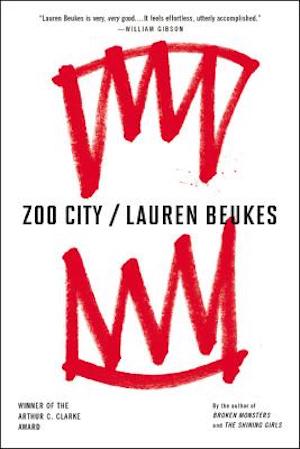
Perhaps my favorite of Lauren Beukes novels, Zoo City takes place in Johannesburg—largely in a slum where criminals who’ve been forced to literally carry the burdens of their sins with them in the form of animals like witches’ familiars, mostly live. Our protagonist Zinzi December is a scammer just out of prison whose animal is a sloth. She has a lot of guilt on her shoulders and a talent for finding missing things. In an attempt to free herself of a drug debt, she takes on a job she usually wouldn’t— seeking a missing person, one half of a popular music duo iJusi. The case turns out to be much more than Zinzi bargained for. Like many a good urban fantasy before it, Zoo City borrows heavily from crime fiction and Beukes uses the premise to investigate real-life social issues plaguing Johannesburg while still delivering on the thrills and excitement as the mystery unravels. Zoo City is drugs, sex, politics, music, social consciousness, journalism, and magic, all mashed together in a city with sharp teeth. Need I say more?
Buy the Book
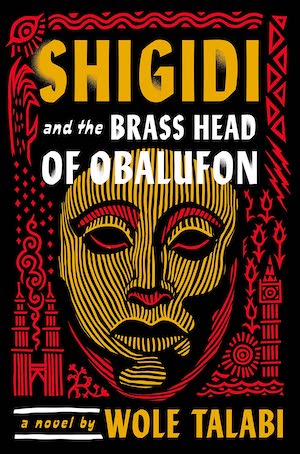

Shigidi and the Brass Head of Obalufon
Wole Talabi is an engineer, writer, and editor from Nigeria. He is the author of the novel (DAW books/Gollancz, 2023). His short fiction has appeared in Asimov’s, F&SF, Lightspeed, Tor.com and other major venues and is collected in Convergence Problems (DAW books, 2024) and Incomplete Solutions (Luna Press, 2019). His work has been a finalist for the Hugo, Nebula, Locus and Nommo awards, as well as the prestigious Caine Prize, and been translated into seven languages. He has edited five anthologies including the Locus award nominated AfricanFuturism (Brittlepaper, 2020) and the forthcoming Mothersound: The Sauutiverse Anthology (Android Press, 2023). He likes scuba diving, elegant equations, and oddly shaped things. He currently lives and works in Malaysia. Find him at wtalabi.wordpress.com and @wtalabi on Twitter, Instagram, Bluesky and Tiktok.










